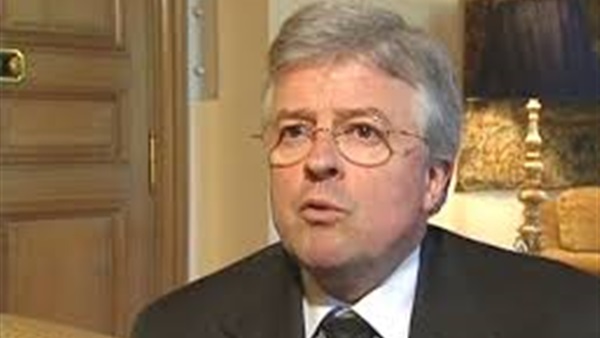Center for Middle East Studies in Paris – June 2018 Western states and the Iranian trap

I have always viewed the July 14, 2015 deal between Iran and Western powers in connection with the Islamic Republic's nuclear program as a bad one. The deal was a byproduct of the naivety of former US President Barack Obama.
Obama
believed he could rein in Iran and even neutralize it when it came to its
pursuit to acquire a nuclear bomb. He mistakenly thought that he could turn
this state into a factor for the stability of the Middle East region.
In
doing this, Obama seemed to overlook the DNA of Iran's Ayatollahs, a regime
that does nothing but lie and plan expansion. This expansionist strategy is
manifest in Syria, Iraq and Yemen.
The
desire of incumbent US President Donald Trump to obliterate the deal is no
surprise then, even if Trump is always unpredictable. The US President deserves
to take credit for discovering that Western states had been bamboozled by the
Iranian regime.
Put
into consideration, this can explain why France, Germany and the UK want to
keep the deal. The three states want, in fact, to protect 20 billion
Euros-worth of trade agreements they hammered out with Iran following the
signing of the nuclear file deal. They also want to preserve other agreements
worth tens of billions of Euros Iran signed with major European companies, such
as Total; PSA; Renault, and Siemens, to mention but a few.
French
President Emmanuel Macron and German Chancellor Angela Merkel cannot just
understand that preserving trade ties with Iran would but give the kiss of life
to the Iranian economy and keep the Iranian regime afloat. This will encourage
the Islamic Republic to maintain support to terrorist organizations, such as
Hezbollah in Lebanon, Hamas in Gaza and the Houthi militia in Yemen.
Iranian
President Hassan Rouhani and Foreign Minister Mohammad Javad Zarif can be
pragmatic. Nonetheless, like other members of the Iranian regime, they
blackmail Europeans by threatening to resume their uranium enrichment activity
if the Europeans do not ensure the continuity of the nuclear deal with Western
powers.
Iran
had never stopped work on its nuclear program – even if secretly – after it
signed the deal with Western powers. It is no surprise then that International
Atomic Energy Agency inspectors had filed a complained against the Iranian
government for denying them entry into some important sites.
Today
– and more than ever before – the Iranians work to polarize the Europeans and
the Americans, getting support from their Russian and Chinese allies. They may
succeed if Trump moves ahead with imposing sanctions on European companies that
maintain business with Iran.
Macron
will find it difficult to get the Iranians to approve an amendment of the nuclear
deal like Trump wants. The Iranian regime has to suspend the nuclear program
until after 2025 and accept the addition of new articles to the deal for
suspending the launch of ballistic missiles and ending Iranian expansionist
policies in the Middle East region.
The
eruption of a new conflict in the region has become at an arm's length,
especially after Israel struck Iranian targets in Syria. The Hebrew state,
Saudi Arabia and other Arab Gulf states know well that the US will come to
their aid. War will be imminent if Iran speeds up the enrichment of uranium or
platinum.
A
flare-up of aggressions will not serve Iran's interests. Trump also wants
sanctions to be slapped on the Iranian regime to pave the road for its
collapse.
This
is an appropriate time for this to happen: the Iranian economy is on the verge
of falling apart, the Iranian riyal has lost a third of its value to foreign
currencies, and 80% of Iranians are fed up with the regime.
Tehran's
bazaars, known to be the pulsating heart of the Iranian economy, which
contributed to bringing down the Shah of Iran Mohammad Reza Pahlavi, do not
want the Iranian regime any more. This is extremely significant.
Now,
it is time the Iranian people decided whether it wants to participate in the
making of history.





